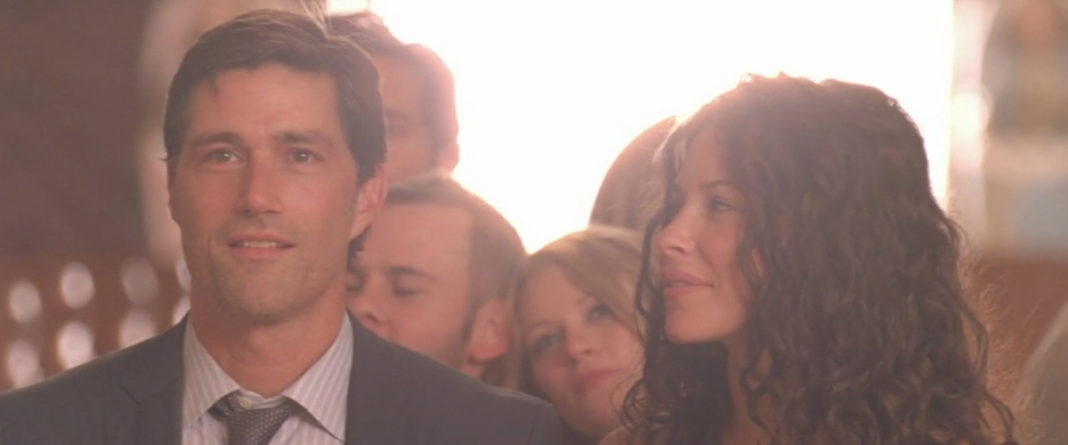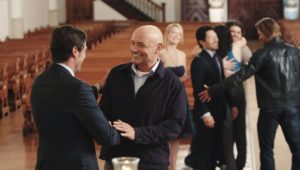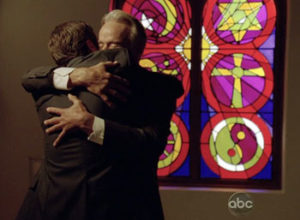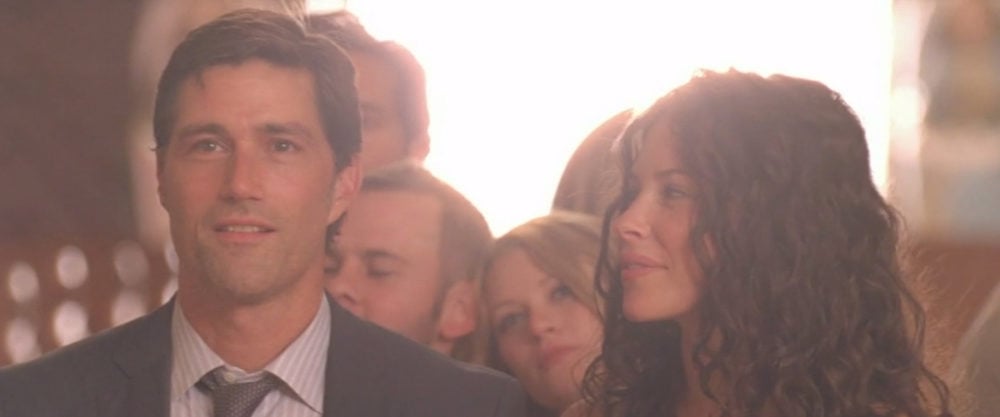Fifteen years ago, Oceanic Flight 815 crashed on the beach of Magic Island, introducing the world to Lost and sparking six seasons of faith-versus-reason arguments that, in some cases, ended friendships (or at least forced good buddies to take a break from each other until summer hiatus).
The debate over how Lost would end was a hot topic every year. There were tons of theories and questions along the way. Would reason win and prove that the whole place had a scientific explanation? Would those who believed that the island was supernatural and that everyone was fated to meet there reign supreme? Will every question be answered (because there were A LOT)? Are we all in agreement to not ever speak of Nikki and Paolo?
Well, faith and fate won, and I know some of you are pissed. But here’s why the ending of Lost makes sense.
From the beginning, the groundbreaking show set up a story where science and the mystical were at odds and yet working side by side at all times. In fact, the whole premise is based on the concept of duality. John Locke (Man of Faith, played by Terry O’Quinn) says it in Season 1: “Two players. Two sides. One light. One dark.” In the end, the two concepts had to come together to save those destined to be saved, including the island itself. Light doesn’t exist without dark and vice versa. Both light and dark can’t, and shouldn’t, be left alone. There must be balance.
When we meet Jacob (Mark Pellegrino) and the Man in Black (Titus Welliver), the duality concept progresses even further. Jacob calls worthy people to the island to keep the darkness at bay, and each candidate goes through a series of tests to see if they really are fit. By the end of the show, Hurley (Jorge Garcia) is the chosen protector (he’s probably one of the most morally stable throughout the whole series) and his successors are inferred to be psychic Walt and Aaron, Claire’s (Emilie de Ravin) island baby, who were both considered special from the start.
At no point throughout six seasons were science, reason, and tangible real-world explanations ever going to be the sole survivor. The show simply wasn’t designed that way. There were too many coincidences, too many miracles. Oh, and time travel and a variety of psychics. Among all the mystical stuff there were solid scientific elements, like the immense levels of electromagnetism, as seen in the Swan station. But neither science nor faith exists without the other.
When the final season of Lost premiered and viewers were introduced to the sideways world, it became evident as the episodes progressed that we were watching either a parallel universe or purgatory Side note: some still hold onto the concept that the whole show was purgatory, but that is incorrect. The events on the island actually happened in real life. The only time we saw our favorites crossing over into a higher plane of existence was in this sideways world.
Which brings us to where Team Reason gets upset.
As we come to the realization that the sideways world represented the survivors passing onto the next phase, we see them finding peace with each other and themselves. Many fans who were solidly in Team Reason’s corner didn’t like how metaphysical the ending was. There was too much religion, too many spiritual symbols at the conclusion, and too many questions left unanswered. The fact that the show ends in a church was the icing on the cake for some. Many also found it unsatisfying, unclear, and downright confusing.
But here is why it works and makes absolute sense:
- The whole show is sprinkled with references to a variety of religions and beliefs, not just Christianity, although it’s worth noting that Jack’s (Matthew Fox) father’s name is Christian Shepard (John Terry).
- The main characters crossed paths several times, either before boarding the plane, while they waited at the airport, or on the plane itself, which points a big neon sign at the word “destiny.”
- Characters who were sick or injured in the real world are suddenly healed. Locke can walk. Rose (L. Scott Caldwell) no longer has cancer. Jin (Daniel Dae Kim) and Sun (Yunjin Kim) can conceive.
- Before even getting to the island Jack performs a miraculous procedure on his wife Sarah. Jack Shepard. Son of Christian Shepard. Miracles. Destiny.
- The psychic Claire visits early in her pregnancy knows waaaay too much about her situation and sees from the start how important Aaron will become. Then there was the incident of his resurrected daughter later on…
- Speaking of Aaron, Aaron was Moses’ brother. Mr. Eko (Adewale Akinnuoye-Agbaje) gives a brief history of the biblical character who was a prophet and a priest as well as his brother’s voice.
- The island was always a place of convergence. It was a source of power whether you believed in a divine force or simply electromagnetism. The church at the end was also a place of convergence where all of the characters met before passing on. If you look behind Christian (who “shepherds” the characters to their next phase) those are not just symbols of Christianity. The stained glass window features six symbols representing major religions of the world: Islam, Hinduism, Buddhism, Judaism, Christianity, and Taoism. Eagle-eye viewers will also see statues of Mary and Buddha, crosses, rosaries, and paintings of the Star of David and Vishnu.
- Christian succinctly explains how their destiny shaped their ending. He tells Jack that they created that place as a way to find each other when they died because “The most important part of your life was the time you spent with these people.” They all didn’t die together. They died when it was their time, but they had to meet here to move on. Note: Ben still had some work to do for his transgressions and couldn’t enter the church. And Michael is also not allowed inside for his unsavory choices throughout the series.
In the end, I think the real reason the Lost finale has so many haters is because those who found it to be disappointing or confusing were focusing on the wrong thing. They were looking for definitive answers about polar bears, infertility, and who was running the food drop (if you paid close enough attention and also watched the epilogue released after the show ended, pretty much everything does get answered).
Some people complained that the ending was lackluster and anticlimactic for a show that kept you on your toes for six years. I disagree completely because there was plenty of action leading up to the very end. Explosions, major character deaths, and choreographed hand-to-hand combat scenes filled the screen, but alongside everything was this beautiful ending about souls finding each other and themselves.
Lost, with all its great mysteries, ended up being about people. It wasn’t going to be an action movie where Jack gets pulled into the ‘copter at the end, machine gun spraying bullets at the bad guys. It wasn’t a show trying to get you back to church, either. It was about human connection and finding purpose when you are both literally and emotionally lost. In the end, these people found their connections. It wasn’t about Dharma or smoke monsters. It was about them. And when you look at it from that perspective, The End is a lot more satisfying.












Excuse me, but a couple years before the show ended one of the producers was asked if the characters were going to find out they’d been dead all along and he dismissed that idea out of hand. So when the ending turned out to be a big cliche, some people were notably disappointed. I believe he later said that at the time he made that statement it was true, but they changed their mind. Yeah.
@James Van Hise they were NOT dead all along, as stated by this article and Christian Shepherd at the end of the show.
Anyway, this is a really thought-provoking article, thank you Deanna!
Comments are closed.